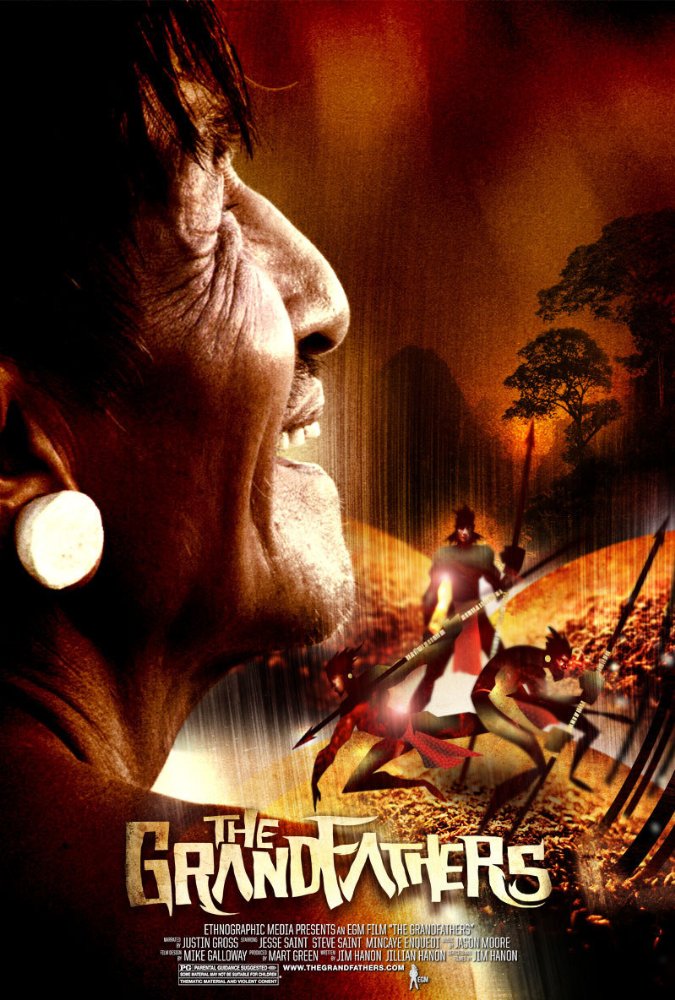In January 1956, five missionaries were brutally speared to death in the jungle of Ecuador. Jim Elliot, Nate Saint, Ed McCully, Peter Fleming, and Roger Youderian tried to evangelize a tribe known for their violence towards outsiders and even among themselves.
They flew over the isolated village, dropping gifts for the people. Then they moved in to establish a camp close to the village. A brief first meeting with three Huaorani seemed to go well. Two days later, the five men were dead.
The story hit newspapers across North American and sparked a renewed interest in missionary work. I heard the story growing up. I remembered the names of Jim Elliot and Nate Saint, but couldn’t have told you exactly where they were killed.
I recceived this DVD for review courtesy of the publisher or publicist; all opinions expressed remain my own. This post contains affiliate links.
EthnoGraphic Media teamed up with Nate’s son Steve Saint to produce End of the Spear, a feature film about the missionaries and their deaths, and Beyond Gates of Splendour, a companion documentary. The Grandfathers is the final part of this trilogy about the missionaries. This movie is Jesse Saint’s story—Nate’s grandson.
 The Grandfathers caught my attention because I was curious about what it would be like to grow up in the shadow of such a famous man. Nate Saint died when his son was a young boy, so how did his death affect his family?
The Grandfathers caught my attention because I was curious about what it would be like to grow up in the shadow of such a famous man. Nate Saint died when his son was a young boy, so how did his death affect his family?
In The Grandfathers, Jesse tells how his aunt Rachel (Nate’s sister) went to live with the Waodani after her brother’s death (along with Elisabeth Elliot, Jim’s wife). When she died, Steve Saint took his family back to the jungle to live with the Waodani—the very people who had killed his father. Jesse talks about getting to know the Waodani. His family built their house by hand and he struggled to fit in with a strange people.
“To be a follower of the Crucified means, sooner or later, a personal encounter with the cross. And the cross always entails loss. The great symbol of Christianity means sacrifice and no one who calls himself a Christian can evade this stark fate. It is not by any means an easy thing to recognize, within a given instance of personal loss, the opportunity it affords for participation in Christ’s own loss. What, we ask ourselves, can this possibly have to do with that?” ~ Elisabeth Elliot
Halfway through The Grandfathers, a team of students came from the States to visit. These students asked about the extremely violent tribe they’d heard about in their anthropology studies. One woman began talking about how the man across from her killed her entire family. Another woman said the man beside her killed her family. Then Steve said these men killed his father. The students were stunned. The tribe was now friendly and welcoming—what had changed?
I had to google the men to find some more information, because The Grandfathers left me with questions. The pace was slow at first. I found the way the movie was put together a bit distracting. Instead of showing clips of Jesse talking, the movie slid around, as if over a scrapbook page, so there was a lot going on. The end of The Grandfathers was very powerful, as I finally realized the relationship Jesse had with the men who had killed his grandfather.
From a human perspective, the deaths of Nate Saint and his companions seems like a waste. From Jesse’s perspective, while he lost one grandfather, he gained many others. From the distance of fifty-some odd years, we can almost begin to grasp the heavenly perspective. God gave up a few sons in order to win many sons and daughters back to Himself.
The Grandfathers was produced by EGM, an educational non-profit organization exploring the critical issues of our time. Other feature films and documentaries from EGM include Little Town of Bethlehem, a groundbreaking documentary that shares the gripping story of three men born into violence and willing to risk everything to bring an end to violence in their lifetime.
The Grandfathers is available on Amazon. You can also get a boxed set of all three movies.


No Responses Yet